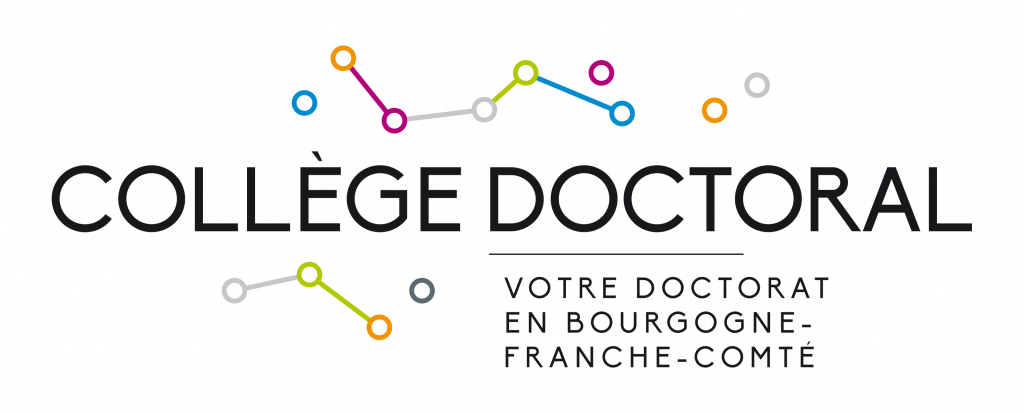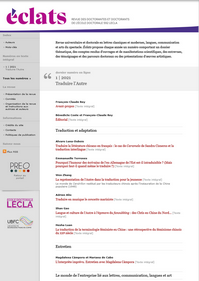The publication of the first issue of its journal “Eclats, journal of the doctoral students and PhDs of the ED 592 LECLA”
PREO, the open access online journals platform of the MSH in Dijon welcomes Éclats, revue des doctorants et doctorantes de l’ED 592 LECLA, a new referred journal. As a journal run by early career researchers from ED 592 doctoral school, Éclats is the first journal of the Comue UBFC doctoral schools to be published.
Like all recent referred journals on PREO, Éclats’ project has been reviewed by internal and external academics and publishers in order to be accepted by the platform. PREO has created Eclats’ website, has helped the journal’s editorial board implementing Metopes workflow. It has helped the editorial board using Creative Commons (CC) licences according to the recommendations of France’s Second Plan for Open Science. PREO and the Université de Bourgogne Library also ensure that Éclats has its own electronic ISSN. Éclats is already referenced by Mir@bel, a French platform for OA journals, in order to be instantly visible in all libraries catalogues. Its access policies should soon be referenced on Sherpa-Romeo’s platform.
Éclats is an academic referred journal covering the domains of linguistics, ancient and modern languages, information and communication sciences and the performing arts. It is run by doctoral candidates and early career researchers interested in publishing cutting-edge research in open access format. Éclats publishes a yearly issue of referred articles on a specific topic along with book reviews, reviews of scientific events, interviews of both artists and PhD holders working in the non-academic sector, and testimonies of doctoral candidates on their own research.
Éclats’ first issue is devoted to translation and adaptation envisaged as both as activity and research object. Arguably there is no single absolute definition and the editorial board has conceived of both translation and adaptation in their confrontation with otherness sustained by purposes and practices.
Each of the 6 referred articles presents the results of specific investigations in a substantial array of languages. Each reminds us that translation and adaptation are steeped in history, create collective forms of commitment, and obey specific policies ranging from the personal to the corporate. Reviews from a selection of recent publications on translation provide a welcome complement to those articles.
Doctoral candidates and recent PhD holders provide accounts of their own work and testify to the variety of research in translation—from translation studies to linguistics through interpreting or single authors’ studies.
Dr Vianney, founder and CEO of ERDIL, presents how translation and natural-language processing are not so different; Magdalena Campora, Stendhal’s translator into Spanish and Associate Professor in Buenos Aires, presents her latest monograph, El interprete imprevisto, which investigates how canonical literary works in French have been translated for popular collections in Argentina between 1920 and 1955.
The objective of Éclat’ first issue is not to be exhaustive but to present recent inspiring work on translation and adaptation, to elicit a multitude of questions, and, hopefully, to trigger new projects.
Éclats is supported 592 LECLA doctoral school (Comue UBFC) and published by PREO platform.
*
As UBFC’s OA platform, PREO has been created by Dijon MSH to assist the university’s publishing process. It provides support to all academics and journal editors with publishing projects (whether electronic or transitioning from paper to electronic publication). Hosted by the Université de Bourgogne’s digital infrastructure, it uses LODEL open source software and is working in partnership with Opendition.
PREO is a founding member of REPÈRES, a network of platforms for some 80 academic journals both in France and in Belgium that supports the development of good practices in OA publishing.
Contacts:
- PREO: preo.mshdijon@u-bourgogne.fr
- Éclats: revue-eclats@ubfc.fr
You can consult the first issue at the following address https://preo.u-bourgogne.fr/eclats/

